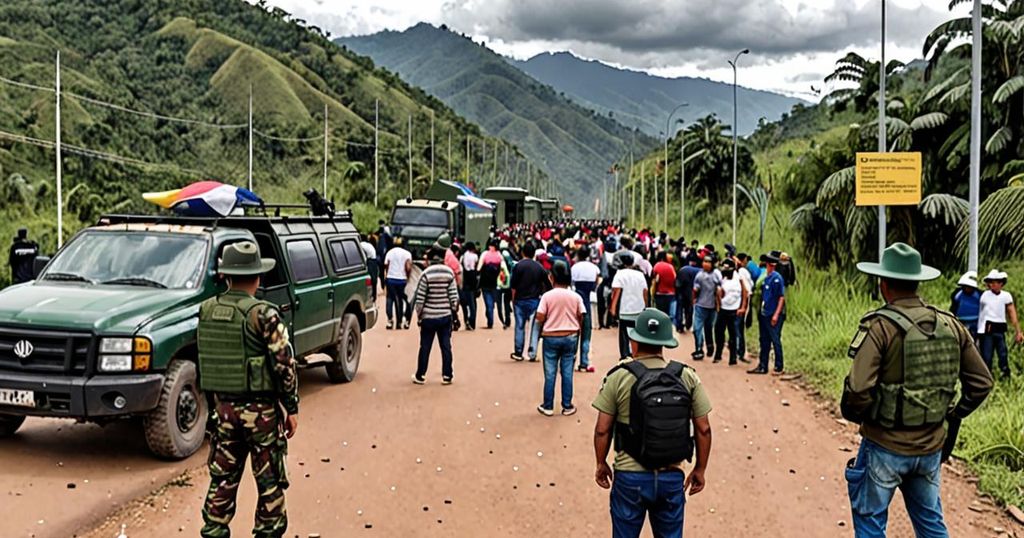On the Edge: Venezuelan Refugees at the Colombian Border
– The 2024 presidential elections in Venezuela have resulted in significant political turmoil, with allegations of fraud surrounding incumbent president Nicolás Maduro’s claim to victory. This has caused widespread protests and escalated the already volatile situation in the country. The opposing candidate, Edmundo González Urrutia, and his supporters are contesting the election results, prompting international observers and diplomats to call on the Maduro regime to release the official election counts. As tensions continue to escalate, Venezuela’s neighbor, Colombia, particularly the department of Norte de Santander, has become a critical hub for Venezuelan refugees seeking shelter from the chaos in their home country.
With more than 7.7 million people having fled Venezuela, Colombia has borne the brunt of the Venezuelan exodus, facing significant strain on its resources. The migration route between Colombian cities such as Cúcuta and Bucaramanga has witnessed a constant influx of Venezuelan refugees, often referred to as “caminantes” or hikers, due to the arduous journey many of them make on foot. The shelters along this route have become a stark reflection of the despair and hopelessness experienced by these immigrants, who, until recently, had hoped for a resolution that would enable them to return to Venezuela. However, with the surge in unrest following the election, these hopes have been replaced by increasing fears for the safety of their families and the realization that a return home may not be feasible.
The situation at the shelter in Pamplona illustrates the challenges faced by the refugees. The shelter, operated by Vanessa Peláez, has recorded a significant increase in the number of refugees seeking assistance in recent months, with nearly 1,850 refugees documented in just two months. The looming prospect of a new spike in migration following Maduro’s victory raises concerns about the strain it will place on local services and the inadequacy of aid and support from neighboring governments.
The emotional toll of these events on the refugees is evident, with individuals like Ronald finding themselves in a state of uncertainty, unsure of their futures and deeply affected by the circumstances in their home country. The sense of disillusionment and heartbreak is echoed by Carlos, who believes the election was fraudulent, a sentiment shared by many others living in the shelters.
As the uncertainty prevails, the refugees find themselves grappling with their faith in the international community, the safety of their families, and the possibility of a worsening crisis in Venezuela, including the fear of potential civil war. This atmosphere of fear and uncertainty pervades the shelters, reflected in the poignant statements of individuals like Stefania, who has been in Colombia for nearly six years, and Riccardo, who now works at a shelter in La Laguna.
The ongoing turmoil in Venezuela and the subsequent influx of refugees into Colombia underscore the urgent need for comprehensive and sustainable solutions to address the humanitarian crisis. As diplomatic efforts and international interventions remain uncertain, it is the lives of countless Venezuelan refugees that hang in the balance, waiting for a resolution to the political crisis that has upended their lives and dreams.








Post Comment